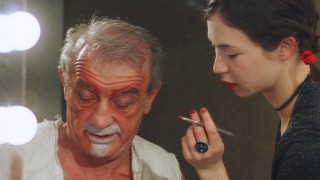
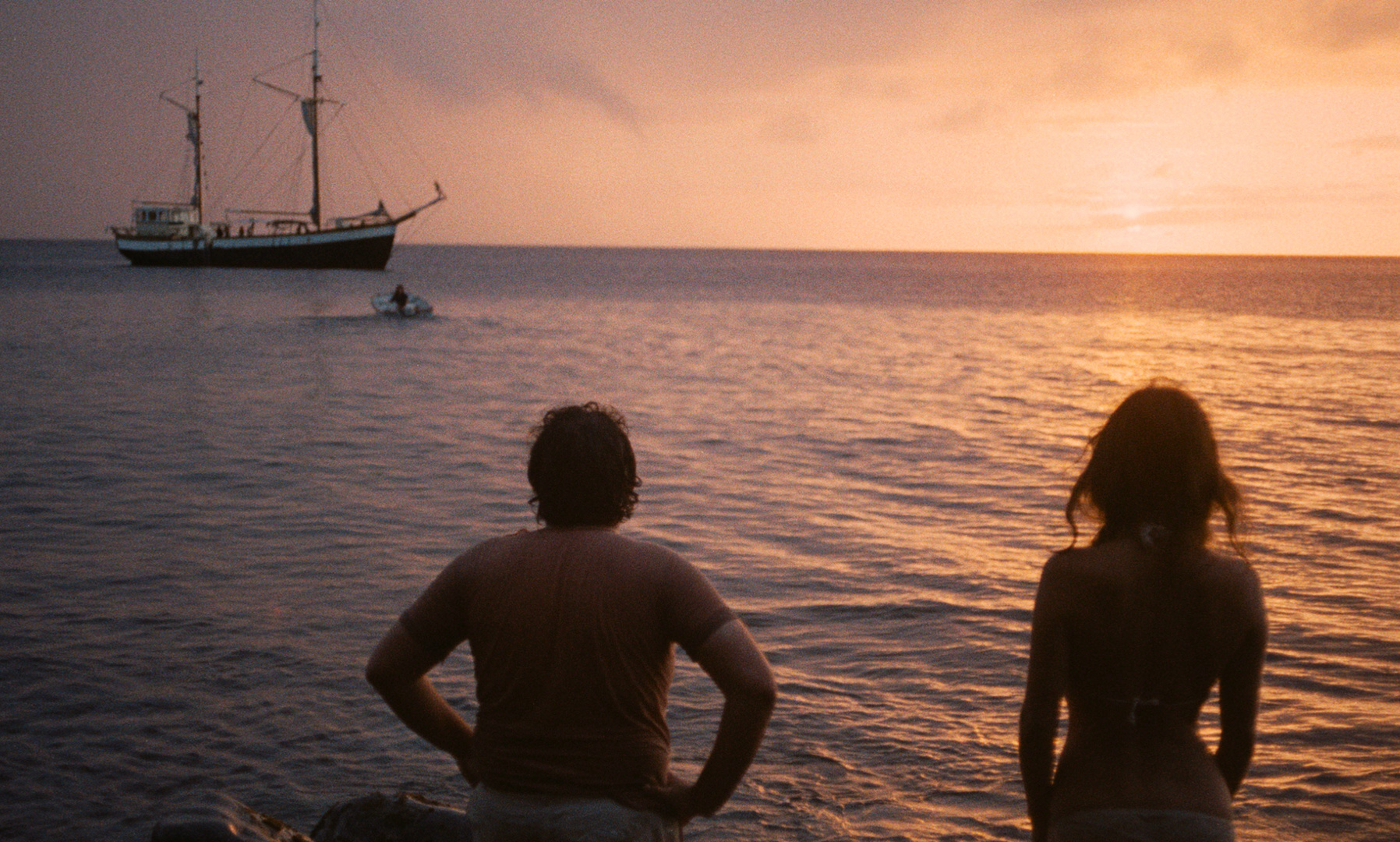
Jacques Rozier: Chronicler of Summer
Jacques Rozier and Jacques Rozier 5 Films – DCP
Adieu Philippine
In his bold yet playful feature debut, and in one of the great overlooked gems of the French New Wave, Jacques Rozier satirizes several major cultural currents of early-60s France: its political blindness, romantic escapism, and commercial corruption. Young Michel (Jean-Claude Aimini) works as a camera technician for a television studio, where he meets two would-be actresses, Liliane (Yveline Céry) and Juliette (Stefania Sabatini). Their demeaning work in advertising allows them to connect Michel with an unscrupulous director (Vittorio Caprioli) who subsequently stiffs him on a job. Fed up with their exploitative industry, Michel, Liliane, and Juliette head to Corsica for a holiday and to track down the director – all while a developing love triangle strains the girls’ friendship. With confidence and panache Rozier expertly employs documentary-style shooting, improvisational acting (among a mostly nonprofessional cast), and kinetic montage sequences to capture the disparity between blithe youth and the societal pressures – especially Michel’s imminent military service in Algeria – that threaten its innocence.
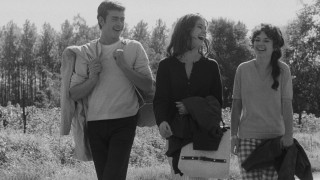
Near Orouet
In early September three young Parisians – Caroline (Caroline Cartier), her cousin Kareen (Françoise Guégan), and Joëlle (Danièle Croisy) – travel to the sparsely populated oceanside town of Orouët for a carefree holiday. At Caroline’s mother’s house they soon take in Gilbert (Bernard Ménez), Joëlle’s boss, and romantic complications inevitably ensue: ever the schlemiel, Gilbert suffers subtle humiliations at the hands of the women in order to remain close to Joëlle, his crush, while Joëlle develops feelings for Patrick (Patrick Verde), a handsome, sporty neighbor who flirts with Kareen. Rozier constructs his love triangle (or square) without an ounce of melodrama, focusing as much on the vacation’s languorous atmosphere – and its giddy effect on the friends’ inside jokes and childish slapstick – as the slow-burn plot. Perfectly capturing both the liberating promise and melancholic effervescence of summer, Du côté d'Orouët is a minor masterpiece of the post-New Wave era and a beautiful meditation on the fleetingness of youth, love, and time.
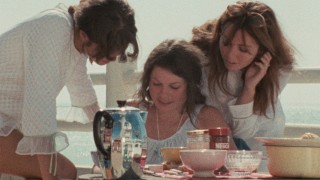
The Castaways of Turtle Island
Having framed his first two features as seaside holiday films, Rozier used the third, The Castaways of Turtle Island, to mock the tourist industry and the increasingly popular “going native” movement among first-world vacationers. Things quickly go south when travel agents Jean-Arthur (Pierre Richard) and Joël (Maurice Risch) offer a “fend for yourself” getaway on a deserted island, with their agency forcing them to accompany clients through deep jungle and across barely charted waters to reach a destination that could give Robinson Crusoe a run for his money. Joël enlists younger brother Bernard (Jacques Villeret) to go in his place, but Jean-Arthur isn’t so lucky and soon devolves into a semi-mad purist who will settle for nothing less than the ultimate in survivalist adventure; meanwhile, a motley crew of tourists become divided over how real this shipwreck holiday should be. Far ahead of its time in its satirical targets and mixing of disparate narrative tones, Turtle Island is a hilarious comic send-up that could only have emerged from Rozier’s puckish imagination.
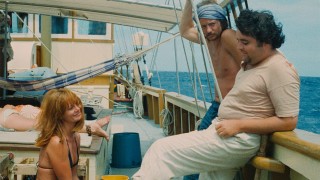
Maine-Océan Express
By land, by sea, by air . . . In Rozier’s quirkiest comedy, a Brazilian dancer’s (Rosa-Maria Gomes) invalid train ticket for a journey from Paris to Saint-Nazaire sparks a shaggy dog story that encompasses the adventures of a quick-tempered boatman (Yves Afonso), his highfalutin attorney (Lydia Feld), a scheming talent agent (Pedro Armendáriz Jr.), and several other memorable characters as they converge and disperse via various modes of transportation throughout a series of unpredictable coincidences. With the boundlessness of human adaptability as its lodestar, Maine-Océan Express covers a delirious swath of narrative ground, including the roundabout path that returns an hapless train conductor (Bernard Ménez) to his duties after he joins an impromptu samba session and nearly becomes “the next Maurice Chevalier.” Applying his long take shooting style to episodic, anarchic zaniness, Rozier once more proves himself a master of making the patently absurd appear completely realistic, and vice versa.
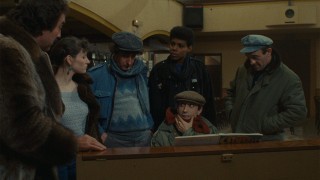
Fifi Martingale
Rozier’s final film is a joyful compendium of his major themes and strategies as well as one of the funniest depictions of the theater ever committed to celluloid. When a director (Mike Marshall) decides – out of pure superstition – to overhaul his play after a successful six month run he unwittingly instigates changes that appear to doom the production. Enter, by pure coincidence, Gaston (Jean Lefebvre), friend of star Fifi (Lili Vonderfeld) and owner of a near-perfect memory that allows him to quickly assume one of the play’s major roles. Everything seems to fall into place until Gaston gambles his advance to raise money for his own struggling theatrical company, loses his recall abilities, and becomes the target of revenge by the man he replaced on stage (Yves Afonso). Filled to the brim with punning wordplay, theatrical allusions, and the delicious chaos of backstage maneuvering, Fifi Martingale is perhaps Rozier’s finest comedic take on the wild digressions and nick-of-time improvisations that comprise both art and life.
